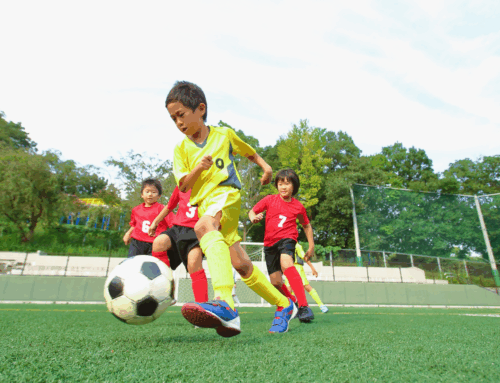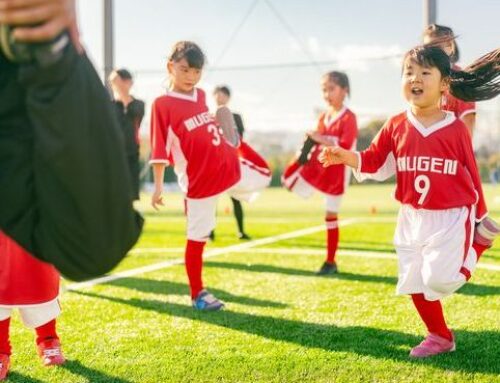Get our exclusive report. Download the iSport360 Club Switching Report Here – For Club Admins, Rec Leaders and Coaches.
5 Carpool Ideas That Bring Families Closer
If you’re a sports parent, you know that youth sports doesn’t just happen on the field. It happens in the car. Between weekday practices, weekend tournaments, and last-minute pick-ups, families spend hours every week driving to and from sports. For many parents, the car becomes the second home—complete with snack crumbs in the seats and a permanent eau de athletic socks.
I’ll be honest—carpooling can feel chaotic. It’s hard enough to make sure my own kid has everything—cleats, snacks, water, helmets, that lucky pre-game headband they absolutely cannot live without. But combining that with other people’s kids, all while trying to get to our destination on time? Some days I feel like I’m running a mobile lost-and-found service. Yet somehow, these car rides often become the moments kids remember most about their sports experience.
That time can feel like a grind, but it doesn’t have to. Carpooling gives parents and athletes rare chances to talk, decompress, and even build team culture. The rides can be just as important as the practices and games, because they shape how kids experience sports overall. Here are five ways to turn carpool time into connection time.
1. Ask the Right Questions
Every parent has asked, “How was practice?” and received the same answer: “Fine.” That doesn’t mean your child doesn’t want to share—that question just has all the conversational power of asking someone to describe the color beige.
The car is a perfect place to ask questions that are specific and lighthearted. Ask what made them laugh today. Ask who worked the hardest at practice. Ask what part of the game was the most challenging. These types of questions get kids talking without making them feel like they’re being cross-examined by a detective.
Sometimes, kids don’t want to talk right away. After a tough game or a long practice, some athletes just need time to sit quietly and stare out the window. You don’t need to fill that silence with cheerful chatter. Often, kids will start talking once they’ve had a few minutes to reset—and sometimes their best thoughts come out during those quiet moments.
2. Build Team Culture in the Backseat
When you carpool with teammates, the drive becomes more than transportation—it’s an extension of the team. Kids swap stories, share inside jokes, and build relationships in ways that don’t happen during drills and scrimmages.
Some carpools even develop small traditions. Maybe the same pump-up song plays before every game. Maybe the group always stops for a quick snack on the way home. Maybe there’s a running joke about the coach’s favorite phrase. These routines give kids something to look forward to and strengthen the bond between teammates.
You don’t need to orchestrate these moments—kids will create them naturally. The best thing you can do is set the tone: let them pick the music (even if you secretly wonder what happened to actual melodies), give them space to laugh, and don’t worry if the car gets loud. What matters is that the car becomes a place where teammates connect and support each other.
3. Make the Car a Classroom for Life Skills
Carpooling is also an opportunity for kids to learn responsibility without you having to give a formal lecture about it. Being ready on time shows respect for teammates and parents. Remembering uniforms, water bottles, and gear builds independence. Saying thank you to the driver reinforces gratitude.
You can support this by setting simple expectations. Remind kids that showing up late affects the whole carpool, not just them. Encourage them to double-check their gear before leaving—because nobody wants to drive back home for forgotten shin guards. Make it a habit to thank whoever is driving.
These lessons might seem small, but they prepare kids for life outside of sports. The carpool becomes more than a ride—it becomes practice for teamwork, accountability, and respect.
4. Use Carpools to Strengthen Parent-Child Bonds
Not every car ride is about the team. Some are just you and your child, and these can be some of the most valuable moments you get together.
The car is often where kids feel comfortable bringing up things they might not share at home. They may talk about school stress, struggles with teammates, or goals for the season. Because you’re side by side, not face to face, kids sometimes find it easier to open up. There’s something about looking ahead through the windshield instead of making direct eye contact that makes honest conversation feel safer.
You don’t need to force these conversations or turn every drive into a therapy session. Just be available and show interest when your child starts talking. The car can be a safe place for honest conversations, whether they’re about weekend plans or deeper worries. Over time, these talks build trust and strengthen your relationship.
5. Organize Carpools Without Chaos
Of course, connection only happens when the logistics don’t make you want to pull your hair out. Miscommunication about who is driving, when to leave, or where to meet can create stress for everyone involved.
A little planning solves most of these problems. Use a group text or shared calendar to track the schedule—and resist the urge to send seventeen follow-up messages asking if everyone saw the first one. Rotate driving fairly so no family feels like they’re running a taxi service. Keep a car kit with basics like water bottles, snacks, and phone chargers. Agree on departure times ahead of time, and maybe build in a five-minute buffer for the inevitable “I forgot my cleats” moment.
When carpools are organized, kids feel secure and parents feel less like they’re juggling flaming tennis balls. The ride itself can then focus on connection instead of confusion.
The Bigger Picture
At the end of the day, carpooling goes beyond the drive itself. It’s the laughter, the pep talks, the quiet moments, and the lessons that kids carry with them long after the season ends.
Your child may not remember the score of every game, but they will remember singing with teammates in the backseat, or the comfort of a calm ride home after a tough loss. They will remember that you were there, not just at the games, but on all the drives in between—even when those drives involved forgotten water bottles, wrong turns, and debates about whether the radio volume constitutes a “reasonable level.”
Carpooling may look like logistics, but for families, it is often the heart of the youth sports experience.
Ian Goldberg is the CEO of Signature Media and the Editor of the largest and fastest growing sports parenting newsletter. He’s been recognized as an industry expert by the National Alliance for Youth Sports, the US Olympic Committee’s Truesport, and the Aspen Institute’s Project Play. Ian is also a suburban NJ sports dad of two teenage daughters and has over 2,000 hours of volunteer time coaching them (which he calls the most fun form of R&D for his newsletter content). Ian and his team provide players, coaches, parents and program directors with the articles and content they need to have a great sports season. Ian has spent most of his career in digital product development and marketing and got his start at the White House where he worked for the economic advisors to two US Presidents.
Learn more or request a demo of our youth sports software that is helping teams improve communication, organization and player development.
September 10, 2025





